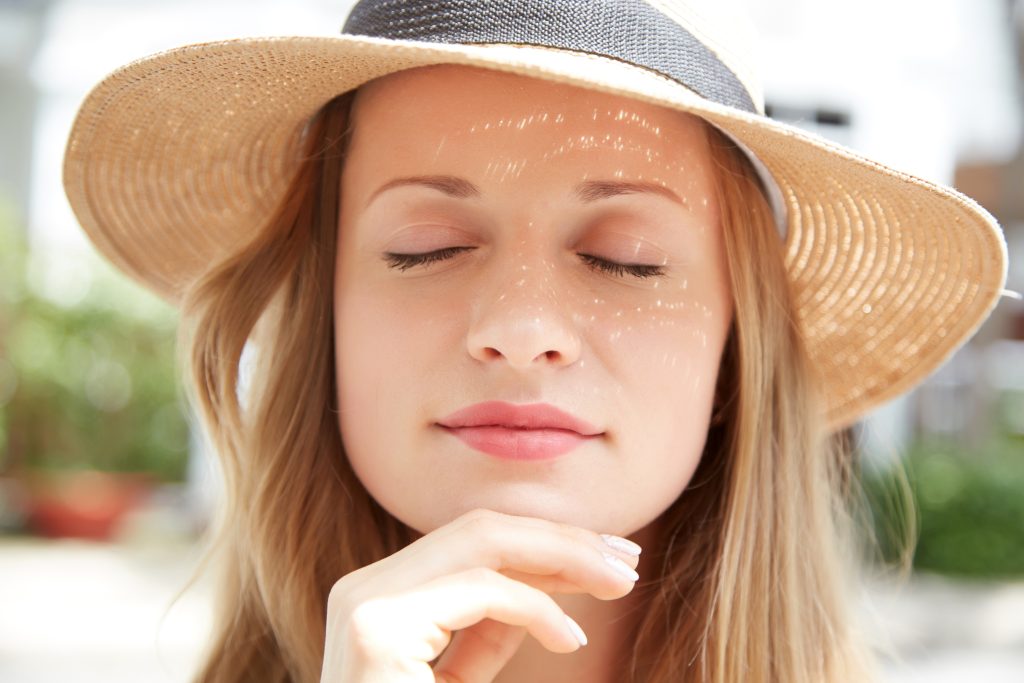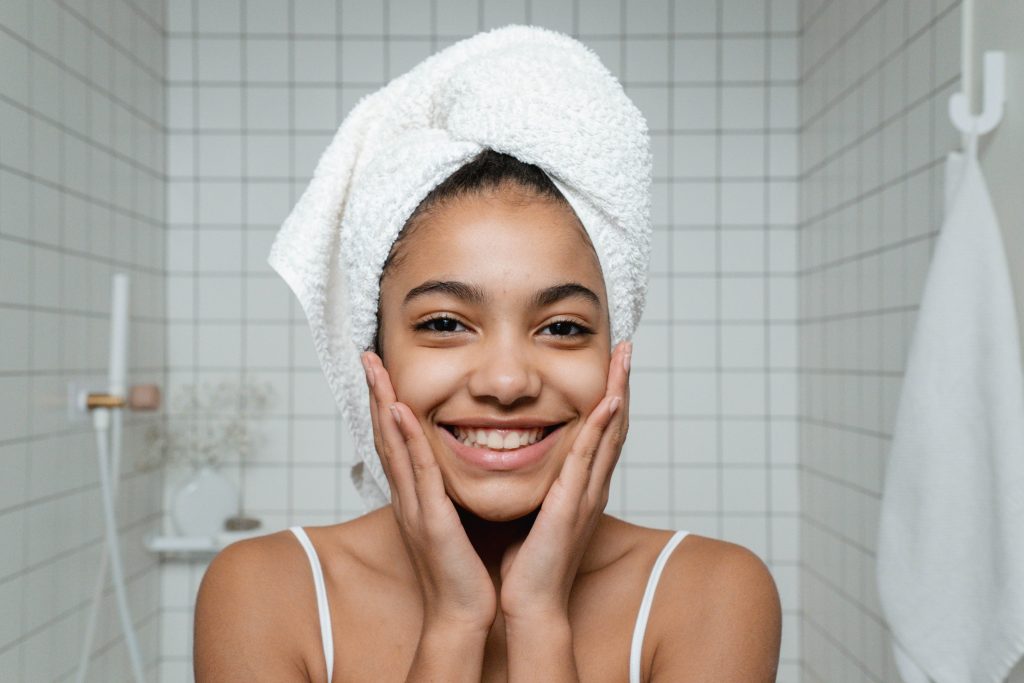- Best facial sunscreens for sensitive skin
- Top-rated sunscreens for oily skin
- Sunscreens for dry skin face
- Anti-aging facial sunscreens
- Mineral vs. chemical sunscreens for face
Table of Contents
ToggleWhat to Facial Sunscreens?
Protecting your skin from the sun’s harmful rays is crucial, and using the right sunscreen for your face can make all the difference. Best sunscreens for face are specially formulated to cater to the delicate skin on your face, providing both protection and skincare benefits.
Whether it’s sunny, cloudy, or snowy, applying best sunscreens for face daily helps prevent premature aging, sunburn, and even skin cancer.
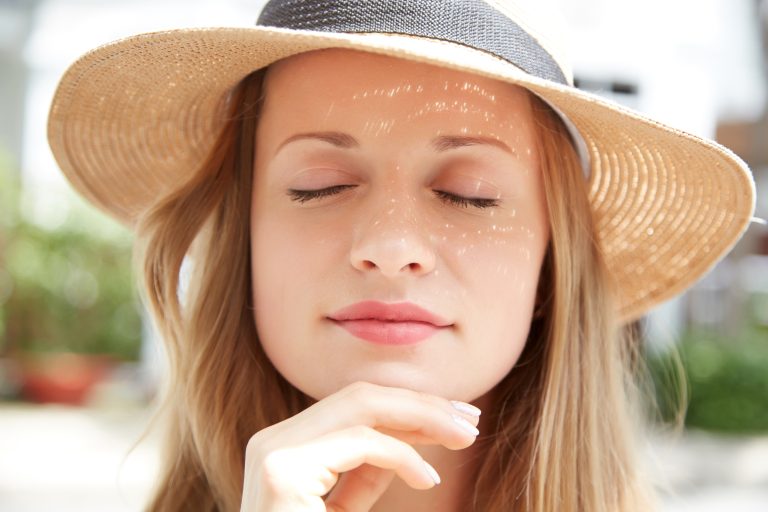
Why Year-Round Sunscreen is Essential?
It’s a common misconception that best sunscreens for face is only necessary during the summer months. The truth is, harmful UV rays from the sun can damage your skin all year round. Even on cloudy days, a significant amount of UV radiation can penetrate the atmosphere. Even on cloudy days, a surprising amount of the sun’s harmful rays can reach your skin.
Up to 80% of UV radiation can penetrate through clouds, so it’s essential to wear best sunscreens for face year-round, regardless of the weather. Winter sports enthusiasts are particularly vulnerable to sun damage. Snow reflects up to 80% of the sun’s harmful rays, significantly increasing exposure and the risk of sunburn and skin cancer.
Year-round best sunscreens for face use helps maintain skin health, prevents hyperpigmentation, and keeps your complexion even and youthful.
How To Decide?
With countless sunscreen options on the market, selecting the best sunscreens for face and perfect product can feel overwhelming. To ensure optimal protection, it’s crucial to find a sunscreen tailored to your unique skin type and lifestyle.
Begin by assessing your skin: is it oily, dry, sensitive, or a combination? If you struggle with acne, opt for a non-comedogenic sunscreen designed to minimize pore blockage and prevent breakouts.
For sensitive skin, mineral sunscreens with zinc oxide or titanium dioxide are gentler. If you enjoy outdoor activities, consider investing in a water-resistant sunscreen. This is best sunscreens for face.
These formulas offer longer-lasting protection when you’re sweating or swimming. Additionally, check for broad-spectrum protection, which guards against both UVA and UVB rays.
Top 10 Best Sunscreens for Face
Product 1: [Brand] SPF 50
[Brand] SPF 50 is a fantastic choice for daily sun protection. Its light, oil-free texture makes it ideal for daily use.
Plus, it offers broad-spectrum protection suitable for all skin types. Sources and related content.
Its fast-absorbing formula leaves no white cast, making it ideal for under makeup.
Product 2: [Brand] Mineral Sunscreen SPF 30
For those with sensitive skin, [Brand] Mineral Sunscreen SPF 30 is a top choice.
This mineral-based formula contains zinc oxide, providing effective sun protection without irritation. It’s fragrance-free and hypoallergenic.
Product 3: [Brand] Tinted Sunscreen SPF 40
[Brand] Tinted Sunscreen SPF 40 combines sun protection with a hint of color, perfect for a no-makeup look.
It evens out skin tone while shielding your skin from harmful UV rays. Suitable for all skin tones.
Product 4: [Brand] Moisturizing Sunscreen SPF 45
Hydrate and protect with [Brand] Moisturizing Sunscreen SPF 45. This sunscreen doubles as a moisturizer, making it ideal for dry skin.
It’s infused with hyaluronic acid to keep your skin plump, hydrated, and looking its best throughout the day.
Product 5: [Brand] Matte Finish Sunscreen SPF 50
If you have oily skin, [Brand] Matte Finish Sunscreen SPF 50 is your go-to. This formula controls shine while providing high SPF protection.
It’s a lightweight formula that won’t clog your pores, and it leaves a beautiful matte finish.
Product 6: [Brand] Broad Spectrum SPF 60
For maximum protection, [Brand] Broad Spectrum SPF 60 offers superior defense against UVA and UVB rays.
This high SPF formula is perfect for prolonged sun exposure and outdoor activities. It’s water-resistant for up to 80 minutes, making it a great choice for swimming or outdoor activities.
Product 7: [Brand] Anti-Aging Sunscreen SPF 30
[Brand] Anti-Aging Sunscreen SPF 30 not only protects but also helps reduce signs of aging.
Infused with antioxidants, it combats free radicals and promotes skin elasticity.It’s ideal for mature skin and can be comfortably worn daily.
Product 8: [Brand] Sunscreen for Sensitive Skin SPF 50
Sensitive skin needs special care, and [Brand] Sunscreen for Sensitive Skin SPF 50 delivers.
Its gentle formula is free from harsh chemicals, synthetic fragrances, and parabens, making it perfect for sensitive skin. It’s also been dermatologist-tested for added reassurance.
Product 9: [Brand] Water-Resistant Sunscreen SPF 40
Stay protected during water activities with [Brand] Water-Resistant Sunscreen SPF 40.
This sunscreen offers reliable protection, even after you’ve been swimming or sweating. It’s ideal for beach days and outdoor sports.
Product 10: [Brand] Daily Use Sunscreen SPF 35
[Brand] Daily Use Sunscreen SPF 35 is perfect for everyday protection. This lightweight formula absorbs quickly into your skin, leaving a fresh, clean feel.
It’s ideal for daily wear and can be easily incorporated into your morning skincare routine.
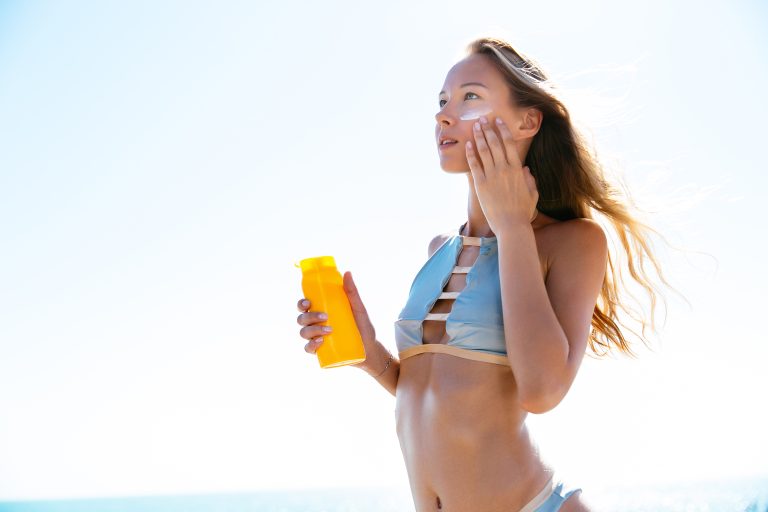
Tips for Applying Sunscreen Effectively
- For maximum sun protection, be sure to apply best sunscreens for face liberally and evenly to all exposed skin.
- To ensure optimal protection, use about a teaspoon of best sunscreens for face and neck.
- Apply it generously 15 minutes before heading outdoors to allow it to fully absorb into your skin.
- For continuous protection, reapply every two hours or immediately after swimming or sweating Don’t forget areas like your ears, hairline, and neck.
- Pair your best sunscreens for face with other sun protection measures, like wearing hats and sunglasses.
Sunscreens for Different Skin Type
Choosing the best sunscreens for face can be overwhelming, but understanding your skin type is the first step. Here are some recommendations.
Oily Skin
If you grapple with oily skin, look for best sunscreens for face sunscreen that controls shine without clogging pores. Opt for lightweight, oil-free formulas like mineral sunscreens with a matte finish. Gel or water-based options are also great choices.
Popular picks include La Roche-Posay Anthelios Ultra-Light Fluid Sunscreen SPF 50 and Biore UV Aqua Rich Watery Essence SPF 50+.
Dry Skin
Dry skin needs extra hydration. When choosing best sunscreens for face with dry skin, both mineral and chemical options can work well. However, prioritizing sunscreens with hydrating ingredients like hyaluronic acid or glycerin is essential to keep your skin moisturized and protected.
Cream or lotion-based formulas provide extra moisture. For example, CeraVe Hydrating Mineral Sunscreen SPF 30 and EltaMD UV Clear Facial Sunscreen Broad-Spectrum SPF 46 offer excellent protection for dry skin.
Sensitive Skin
Sensitive skin requires gentle care. Mineral sunscreens are often less irritating. Look for fragrance-free and hypoallergenic options. Aveeno Protect + Hydrate Mineral Sunscreen Lotion SPF 50 and La Roche-Posay Anthelios Sensitive Skin Mineral Sunscreen SPF 50 are good choices.
Acne-Prone Skin
Prevent clogged pores by choosing oil-free and non-comedogenic formulas. Consider options with ingredients like salicylic acid or benzoyl peroxide for added skin benefits. Neutrogena Oil-Free Acne Face Sunscreen SPF 50 and Cetaphil DermaControl Oil-Free Moisturizer with Sunscreen SPF 30 are popular options.
Combination Skin
Balancing oily and dry areas can be tricky. Look for best sunscreens for face that offer a balanced approach. Gel-cream or lightweight lotion formulas often work well. Clinique Moisture Surge Hydrator SPF 25 and Olay Complete Defense Moisture Cream with Sunscreen Broad-Spectrum SPF 15 are examples.
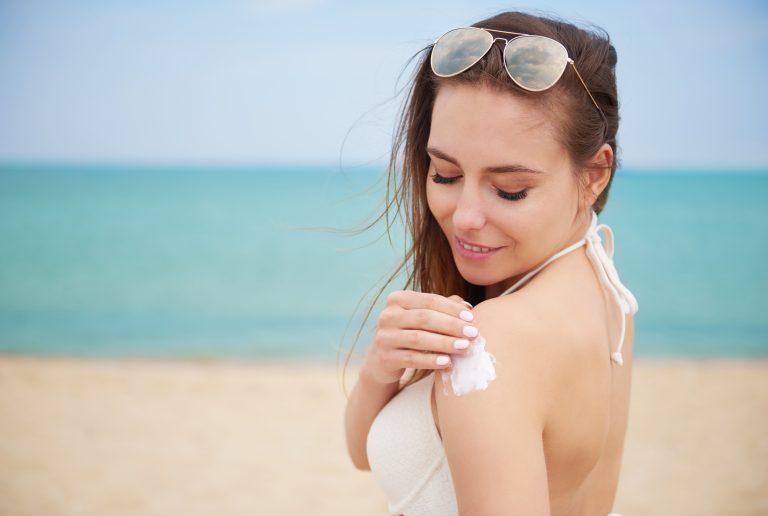
Important Note: These are just suggestions. Before applying any new skincare product to your entire face, it’s important to patch-test it first. This helps prevent unexpected reactions and ensures the product is suitable for your skin.
Why daily sunscreen is essential?
- Premature Aging: Prolonged sun exposure is the primary cause of wrinkles, fine lines, and age spots. Best sunscreens for face helps shield your skin from these visible signs of aging.
- Skin Cancer: Excessive sun exposure significantly increases your risk of developing skin cancer, including the potentially fatal melanoma.
- Hyperpigmentation: Sun damage can lead to uneven skin tone, dark spots, and melasma.
- Loss of Elasticity: UV rays break down collagen and elastin, the proteins responsible for your skin’s firmness and elasticity.
- To maximize sun protection: When selecting a best sunscreens for face, always choose a broad-spectrum formula with an SPF of 30 or higher. This ensures protection against both UVA and UVB rays, which are responsible for skin damage and premature aging.
- Apply generously to all exposed skin, including your face, neck, ears, and hands.
- To maintain consistent protection, remember to reapply sunscreen every two hours.
- If you’re swimming, sweating, or spending extended time outdoors, reapply more frequently to maintain your skin’s defense against harmful UV rays.
- Don’t forget to reapply your sunscreen every two hours, or more frequently if you’re swimming, sweating, or toweling off.
- Look for sun-protective clothing and accessories like hats and sunglasses.
- By making sunscreen a daily habit, you’re investing in the long-term health and appearance of your skin.
Important Note: Even short periods of sun exposure can accumulate over time, leading to cumulative damage. Shield your skin every day, no matter the weather.
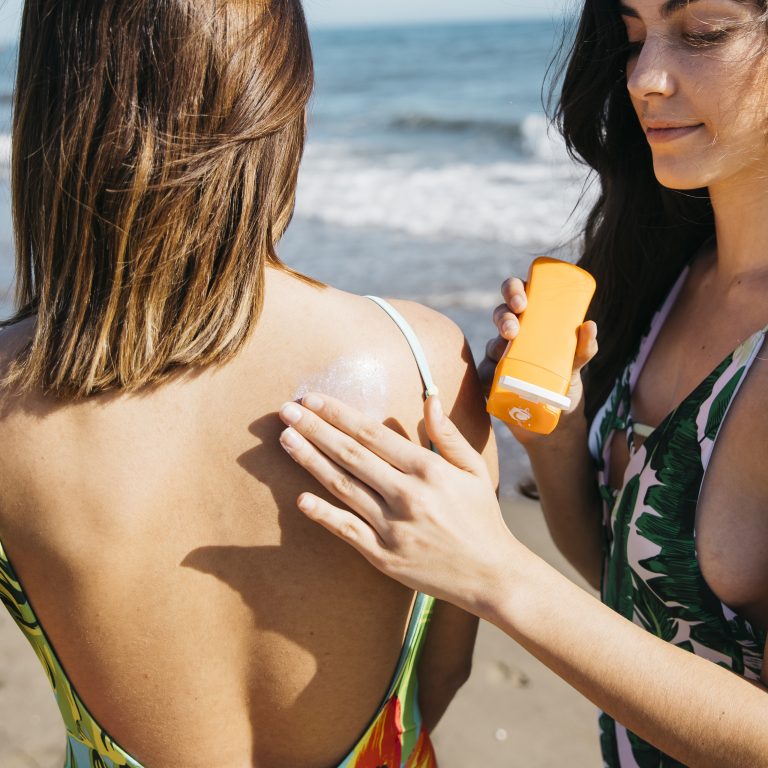
The different types of sunscreens (mineral vs. chemical)?
Mineral vs. Chemical Sunscreen: Which is Right for You?
Let’s dive deeper into these two types of sunscreen.
Mineral sunscreen acts as a physical barrier, reflecting the sun’s rays away from your skin. It’s often preferred for sensitive skin due to its gentle nature.
Chemical sunscreen absorbs the sun’s rays and converts them into heat, releasing it from your skin. These tend to be lighter in texture but might irritate sensitive skin.
Each has its own benefits and drawbacks.
Mineral Sunscreen
Mineral sunscreen, also known as physical sunscreen, creates a physical barrier on the skin that reflects and scatters UV rays. The active ingredients in mineral sunscreen are zinc oxide and titanium dioxide.
Pros:
- Provides immediate protection upon application.
- Generally considered safer for sensitive skin and individuals with allergies.
- Does not absorb into the skin.
Cons:
- Can leave a white cast on the skin, especially in higher concentrations.
- May feel thicker and less cosmetically elegant than chemical sunscreens
Chemical Sunscreen
Chemical sunscreens work by absorbing the sun’s harmful UV rays and converting them into heat energy, which is then released from the skin. This helps create a protective barrier on your skin that blocks harmful UV rays from penetrating deeper layers, reducing the risk of sunburn and long-term skin damage.
Common active ingredients include avobenzone, oxybenzone, octinoxate, and octisalate.
Pros:
- Typically absorbs into the skin more easily, leaving a less visible finish.
- Often available in lightweight formulations.
Cons:
- Takes about 20 minutes to start working.
- Some chemical sunscreen ingredients have been linked to environmental concerns and potential skin irritation
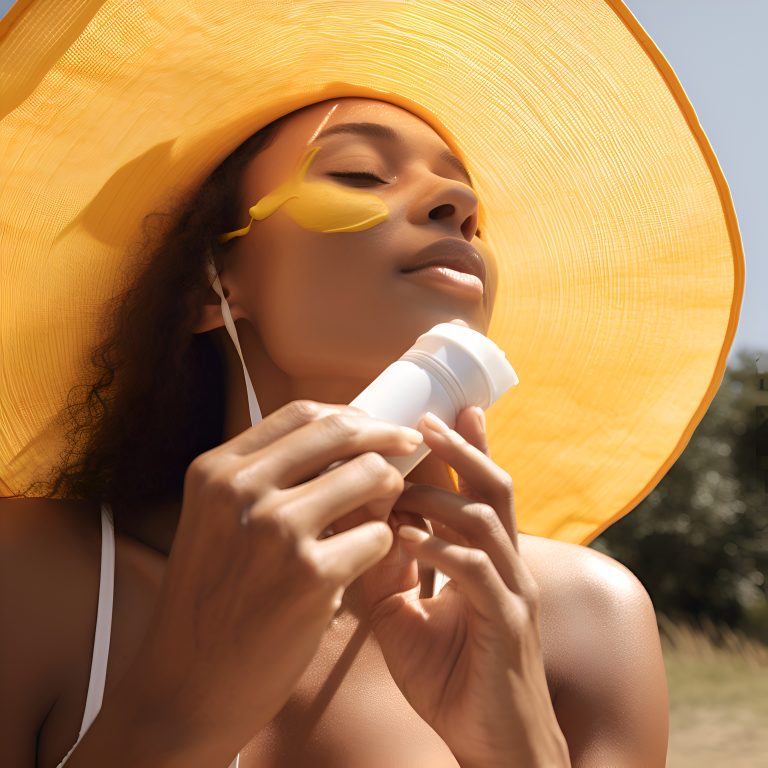
For more about skin care CLICK HERE
Some misconceptions about sunscreen
Myth 1: Higher SPF Offers Significantly More Protection
Fact: While it’s true that a higher SPF provides greater protection, the difference between SPF 30 and 50 is minimal. SPF 30 blocks 97% of UVB rays, while SPF 50 blocks 98%. It’s more important to apply best sunscreens for face generously and reapply every two hours than focusing solely on a high SPF number.
Myth 2: Sunscreen Only Needs to Be Applied on Sunny Days
Fact: UV rays can penetrate clouds, so best sunscreens for face is essential even on overcast or cloudy days. Skin damage accumulates over time, and consistent protection is crucial.
Myth 3: Waterproof Sunscreen Lasts All Day
Fact: No sunscreen is truly waterproof. Water resistance indicates how long a sunscreen can withstand water without losing effectiveness. Even water-resistant sunscreen needs to be reapplied after swimming or sweating.
Myth 4: A Base Tan Provides Protection
Fact: A base tan offers little to no protection against sunburn and skin damage. In fact, tanning is a sign of skin damage. It’s your skin’s way of protecting itself from harmful UV rays. Instead of relying on a tan for protection, always opt for sunscreen. Always rely on best sunscreens for face protection, not a tan.
Myth 5: Sunscreen Causes Vitamin D Deficiency
Fact: Sunscreen does not prevent your body from producing vitamin D. Brief sun exposure without sunscreen on your face and arms a few times a week can be sufficient for vitamin D production. However, it’s essential to consult with a healthcare provider to determine if you need a vitamin D supplement.
Myth 6: Expensive Sunscreen is Better
Fact: The price of best sunscreens for face doesn’t necessarily correlate with its effectiveness. Look for products with broad-spectrum protection (UVA and UVB) and an SPF of 30 or higher, regardless of the price.
By understanding these common misconceptions, And apply best sunscreens for face you can better protect your skin from the sun’s harmful rays.
More about BEST SUN SCREEN

